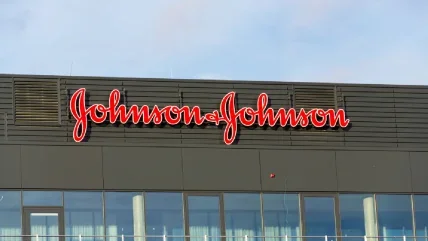
Johnson & Johnson has unveiled the first clinical data from its ongoing Phase 1b study of JNJ-90014496, a dual-targeting anti-CD19/CD20 bispecific autologous CAR T-cell therapy.
The investigational therapy is being tested in patients with relapsed or refractory large B-cell lymphoma (R/R LBCL) who have not previously received CAR T-cell therapy.
JNJ-4496, formerly known as C-CAR039, targets both CD19 and CD20 antigens, which are commonly found on malignant B-cells.
The therapy incorporates a 4-1BB costimulatory domain to enhance binding strength and persistence, potentially addressing resistance mechanisms in relapsed or refractory cases.
Johnson & Johnson Innovative Medicine early clinical development and translational research vice president Jeffrey Infante said: “We’re excited to share the first results for our dual-targeting anti-CD19/CD20 CAR T-cell therapy in relapsed or refractory large B-cell lymphoma.
“As we continue to unlock the full potential of CAR T-cell therapies through novel next-generation approaches, these promising data reinforce earlier long-term findings and highlight the potential of JNJ-4496 to improve outcomes for patients.”
The Phase 1b dose confirmation study reported data at the recommended Phase 2 dose (RP2D) of 75 million CAR+ T-cells, with a median follow-up of four months.
Among the 22 patients assessed for efficacy, those with one prior therapy line showed a 100% objective response rate (ORR) and an 80% complete response rate (CRR).
For patients who received two or more prior therapy lines, the ORR was 92% and the CRR was 75%.
In the RP2D safety group, 52% of patients had received two or more prior therapies, and 56% had received bridging therapy, with no Grade-3 or -4 cytokine release syndrome cases observed in the RP2D cohort.
Two patients experienced immune effector cell-associated neurotoxicity syndrome (ICANS), with one case each of Grade 1 and Grade 3.
The Grade 3 event occurred in a patient with central nervous system lymphoma.
Overall, 84% of patients reported Grade 3/4 treatment-emergent adverse events (TEAEs), with neutropenia being the most common at 72%.
The data support Johnson & Johnson’s collaboration with AbelZeta, initiated in 2023, to develop next-generation CAR T-cell therapies for B-cell malignancies.
A Phase 1 study for C-CAR039 was previously conducted in China, and the company is also conducting a separate global study to evaluate the safety and efficacy of JNJ-4496.
The study principal investigator Krish Patel said: “There is a pressing need to continue advancing therapies for patients with relapsed or refractory diffuse large B-cell lymphoma.
“Only about 40% of patients have long-term remissions with currently available single-antigen-targeting CD19 CAR T therapies.
“The data presented today show encouraging clinical activity and promising safety and represent a step forward in delivering a potential new treatment option to patients living with the most common type of aggressive lymphoma.”






